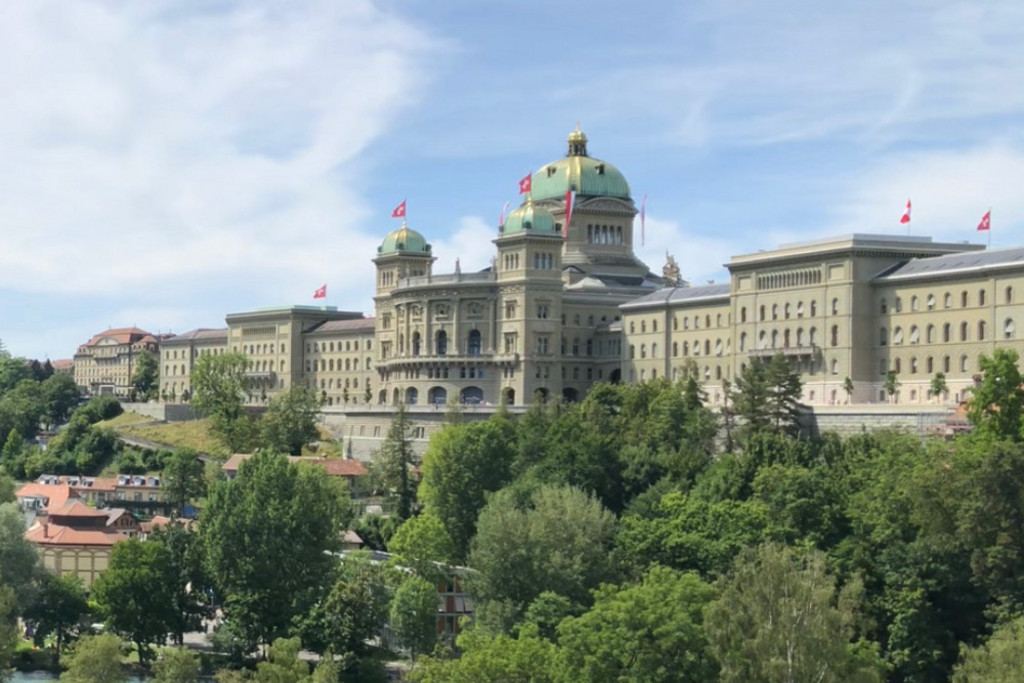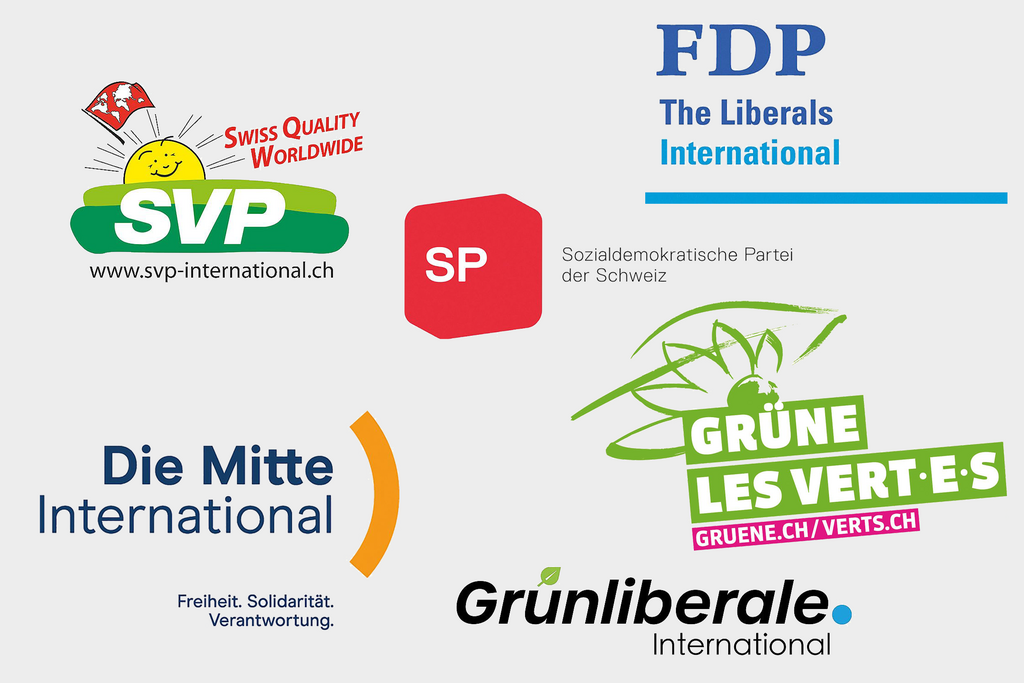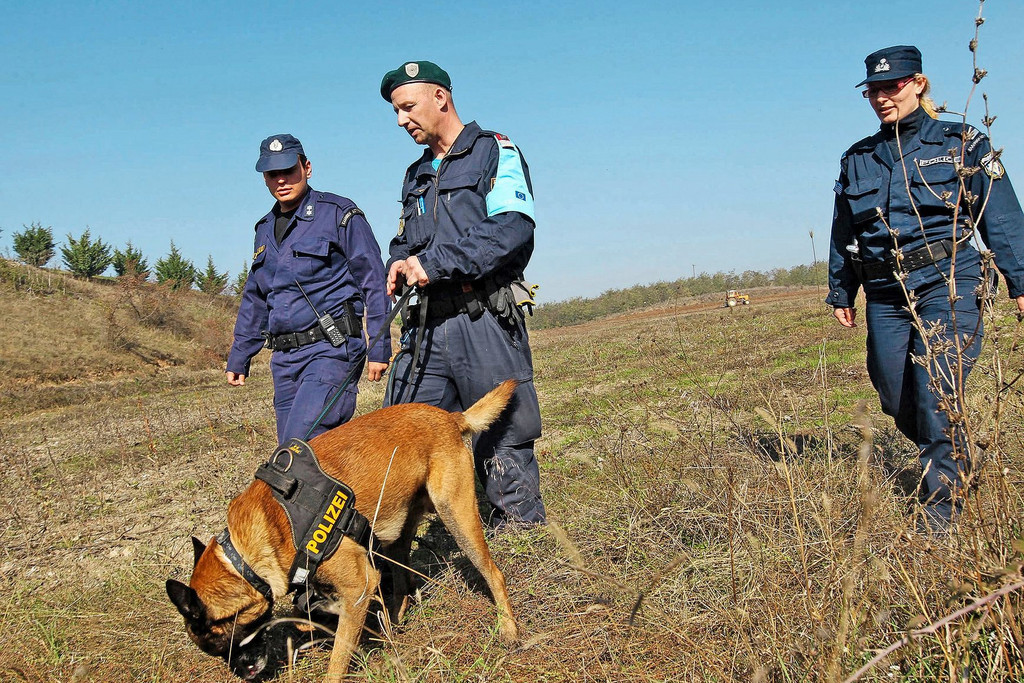“National law before international law” and “Swiss law instead of foreign judges”: these demands perfectly fit times of globally resurgent nationalism. They are simple messages with a great deal of black and white – no shades of grey. And that is the pattern being followed by the so-called Self-Determination Initiative (SDI) of the Swiss People’s Party (SVP), which is to be decided by voters on 25 November 2018. The key demand: “The Federal Constitution stands above international law and takes precedence,” except over a few compulsory laws such as prohibition of torture. In the case of international agreements that go against the Constitution, Switzerland would have to renegotiate or terminate them if necessary. Additionally, for the Federal Supreme Court under the initiative only those agreements would be binding that have been subject to referendum.
According to the SVP, self-determination and the independence of Switzerland are threatened – by “politicians, public officials and professors” who want “that the Swiss people no longer have the last word. They would like to restrict the political rights of the people,” according to the initiative text. It argues that their stance is increasingly “that foreign law, foreign judges and courts count more than that of Swiss law determined by the people and the cantons”. The self-determination initiative would ensure “that Swiss law is our highest source of law” and “that referendums be implemented without any ifs and buts, regardless whether the decision suits the ‘elite’ in federal Bern or not”. Apart from that, the SVP maintains that their initiative provides for “legal certainty and stability, in which the relationship between national law and international law is clarified”.
Threat to stability and reliability
That is just not true, say opponents of the SDI. Because the initiative demands that Swiss international agreements that contradict the Constitution be renegotiated or terminated if necessary, that “calls into question the international obligations of Switzerland, thus threatening Switzerland’s stability and reliability”, notes the Federal Council. Among other things, the SDI would harm Switzerland’s economic position. “It jeopardises legal certainty in international trade relations” and would complicate planning for Swiss companies.
With rigid rules for dealing with possible conflicts between constitutional law and international law, the initiative would restrict the scope of the Federal Council and parliament: the pragmatic search for broadly supported solutions that would be to the satisfaction of both legal jurisdictions would no longer be possible. Switzerland would then have only two options: the change, or renegotiation, of an agreement or its termination.
International law as contract law
The contrast between international law and Swiss law is in any case largely construed, as international law is not simply foreign law that is imposed on Switzerland: international law is for the most part contract law that two states or groups of states have negotiated. International agreements in Switzerland go through a democratic process, as is usual with the enactment of national law. Today all important international agreements are subject to optional or even obligatory referendum.
Opponents of the SDI – the Federal Council, the parliamentary majority and practically all parties except the SVP – judge as particularly sensitive the demand that only those international agreements are to be binding that have been subject to referendum. Thus “the initiative urges authorities to defy existing contractual obligations”, the federalgovernment maintains. This call for breach of contract could massively weaken Switzerland, it says, since contracting parties would no longer feel bound by agreements with Switzerland.
Kathrin Alder, lawyer and Federal Supreme Court correspondent of the “Neue Zürcher Zeitung”, is carrying out an in depth analysis of the “referendum problem”. The discussion about the conflict of national law versus international law was stirred not least by a ruling of the Federal Supreme Court which gave the Agreement on the Free Movement of Persons (FMP) precedence over federal law: “The Self-Determination Initiative now wants to ensure that such rulings are no longer possible in future, promising a simple solution at first glance. The initiative, however, neither rids the world of the free movement of persons, unpopular with the SVP, nor does it provide legal clarity: the FMP was subject to referendum within the framework of the Bilateral Agreements I and therefore remains – as per the wording of the Self-Determination Initiative – binding for the Federal Supreme Court. In the event of conflict, it is the judges in Lausanne who decide.”
Focus on human rights issues
However, if the initiative is accepted, the European Convention on Human Rights (ECHR) would no longer be binding for the Federal Supreme Court, according to Kathrin Alder. “At the time it was ratified, key international agreements were not yet subject to referendum. Its conflicting constitutional law would take legal precedence in future, with uncertain legal consequences.” The NZZ correspondent writes that the initiators “kick the dog, but mean the master: our ‘own’ judges in Lausanne are more annoying to the initiators than the ‘foreign’ judges in Strasbourg. Because it was the Federal Supreme Court that decided that ECHR and FMP take precedence over federal law. The SVP purport to want to strengthen direct democracy with the Self-Determination Initiative. In truth they want to weaken judicial power, namely the Federal Supreme Court of Switzerland. The initiative creates no conclusive hierarchy between national law and international law, rather first and foremost, legal uncertainty.”
The human rights issue is likely to play a key role in the referendum campaign. The Federal Council is warning, in the event that the initiative is accepted, of an “undermining of international human rights protection, particularly the guarantees of the ECHR”. That could lead to Switzerland no longer being able to apply provisions of the ECHR. “In the long term even Switzerland’s expulsion from the Council of Europe is not ruled out, which would amount to a termination of the ECHR.” The Council of Europe and ECHR, however, are of “vital concern” to Switzerland for the stabilisation of the constitutional state, democracy, security and peace throughout Europe, the Federal Councilsays.
In parliament too SDI opponents accused the initiators of wanting to override fundamental rights. This would bring with it the threat of arbitrary rule by the majority. A Yes for the initiative would result in the termination of the ECHR, it was said. But the ECHR gave citizens the opportunity to defend themselves against the state, if necessary.
For Hans-Ueli Vogt, professor of law in Zurich, SVP National Councillor and ‘father’ of the SDI, none of that matters. In an interview with the “Weltwoche” when asked if he was undermining human rights, he said, “No. The protection of human rights in Switzerland does not depend on a foreign court. Human rights are already protected in our Constitution.”
The organisation Schutzfaktor M, that stands for protecting human rights, in contrast maintains: “We need the ECHR even if fundamental rights are guaranteed in our Constitution. For these fundamental rights are not set in stone. A majority of the people and the cantons can change the Constitution. In this manner the fundamental rights guaranteed in the Constitution can be amended or even abolished based on a popular initiative, for example.” Schutzfaktor M has been fighting for years against the SVP initiative, together with more than 100 other Swiss organisations.
The referendum campaign will be very tough . The parliamentary debate offered a foretaste of this. SVP parliamentary group head Thomas Aeschi spoke of a “coup d’état” by the initiative opponents who wanted to revoke voters’ self-determination. Another jab was thrown in by SVP National Councillor Roger Köppel: “What is taking place here is the stone-cold disempowerment of the people. It is a seizure of power, a type of putsch by an elite political class neither willing nor able to protect the political rights of the people, to which they have made a solemn oath.” The “political elite, intoxicated by power, is fiercely determined to usurp popular sovereignty”. Köppel described all his political opponents in the National Council as “non-democrats who wrongly call themselves representatives of the people because other countries are closer to them than Switzerland.”
Do cow horns belong in the Constitution?
On 25 November 2018 Switzerland will also vote on the “Horned Cow Initiative”. Its aim is to give agricultural livestock their dignity back and to lay down in the Constitution that horned cows and goats receive compulsory subsidisation. At the centre of the initiative committee is mountain farmer Armin Capaul. Opponents of the initiative argue that the animals are de-horned to prevent accidents. Also, it is a business decision as to whether one wishes to keep farm animals with horns or without. Initiators and a Left-Green minority in parliament found, however, that for the animals, the cauterising of their horns is linked to anxiety and pain and contradicts the animal welfare act. The Federal Council and the majority of parliament members rejected the initiative.
Picture: Switzerland as Europe's puppet? Thomas Aeschi, SVP National Councillor, during the debate on the initiative. Photo: Keystone





![[Translate to en:]](/fileadmin/_processed_/d/2/csm_Revue_202204_Huehnerfarm_SH-Reportage_3074_7901ca94df.jpg)




Comments
Comments :
Bevor Sie sich das nächste Mal ergreifend negativ über die EU äussern, gehen Sie doch bitte in sich und stellen Sie sich den folgenden Überlegungen:
Sind wir "Schweizer"um so viel besser, dass wir uns eine derart negative Kritik leisten können?? Ich glaube nicht.
Der historische Kontext, grosse Teile der heutigen EU waren vor ça. 1000 Jahren das fränkische Reich, und das funktionierte solange, bis irgend ein Anfall von Nacionalismus Tradition, Blut und Bodenpolitik über die Menschheit kam.
Resultate: Kriege, Gewalt und Zerstörung, Danke schön. Mehr noch,
Donald Trump mag sein was auch immer, jedoch im Sinne der Zölle hat er Recht. Stellen Sie sich vor, er belastet die Schweiz mit Zöllen auf Uhren, chemischen Produkten, Schokolade etc. Wie, glauben Sie, kann sich der Miniaturstaat Schweiz dagegen behaupten, und wer würde uns helfen???
Befassen Sie sich bitte mit Bondo und allen, der durch den Klimawandel bedingten, Konsequenzen. Vor allem den finanziellen
und die für den Tourismus. Bitte bis ins Detail.
Die Erfahrung zeigt doch, je mehr wir unser, zum Teil unnützes
Bürokratiemonster aufplustern, umsomehr Arbeitsplätze werden ins kostengünstigere Ausland verlagert z.B GE, Novartis etc. Wer soll denn da noch Steuern bezahlen?
Ohne das Menetekel an die Wand zu malen, ich sehe die Schweiz mittelfristig als DER europäische SANIERUNGSFALL. Jedoch ohne EMS.
Heutzutage können wir die EU-und NATOmitgliedschaft noch verhandeln, fragt sich wie lange noch, und wann werden wir in Brüssel knien?
Diese Initiative ist nicht nur hirnrissig, sondern sie ist, wie Alles was von dieser Seite herkommt, zwischen intellektuem Bankrott und akutem Hirntod anzusiedeln. Mehr noch
Da werden mit Effekthascherei schamlos Steuergelder verbraten.
Hätten wir nichts Gescheiteres zu tun?
Ein Beispiel
Meine Frau(Colombiana) und ich benötigen z.Z. eine Bestätigung
von wo das Geld fürunsere Renten herkommt. Meine Allerbeste hat das per E-Mail in Kolumbien verlangt und 2(ZWEI) Stunden spáter
das Gewünschte im gleichen Medium auch erhalten. Zur genau
gleichen Zeit habe ich die entsprechende Bestätigung für mich in der Schweiz angefordert.
Auch nach 8 (A C H T) Tagen habe ich von der doch ach so hochmodernen Schweiz nichts erhalten.
Ich habe in mehreren 2welt-Ländern (Bananenrepubliken)gelebt und gearbeitet. Meine Eindrücke In einer Bananenrepublik wissen
95% der Leute, das Sie, eben, in einer Bananenrepublik leben. In merry good old Switzerland beschränkt sich dieser Anteil zuf 5%
Erwin Balli
Welcome the Godless and Lawless ruling class !
"Wie mann sich bettet, so liegt mann!.....
....or: "what we tolerate, we have to live with" !
We feel sorry for the SWISS EIDGENOSSEN !
Aloha,
Albert Ledergerber
Tanz mal schön weiter auf deiner 100%-Welle. Aber du irrst dich: Ich WILL in die EU. Und mit deinem 100%-Bürgerkrieg kannst du mir den Buckel runterrutschen. Auf spanisch sagt man: Me das asco.
De plus, le Conseil de l'Europe (organisation internationale qui comprend en son sein la Cour EDH) est quand même efficace et les décisions de la juridiction peuvent être préjudiciables pour le pays mais il s'agit, tout de même, d'une des garanties de l'Etat de droit suisse d'un point de vue international et cela peut dans certains cas réveiller le législateur pour faire évoluer nos règles juridiques.
On a toujours besoin d'un plus grand que soi!